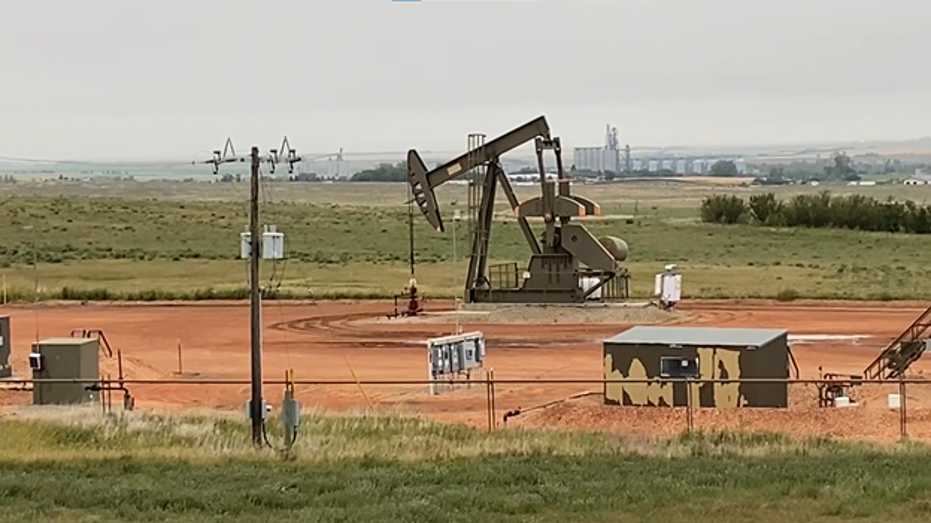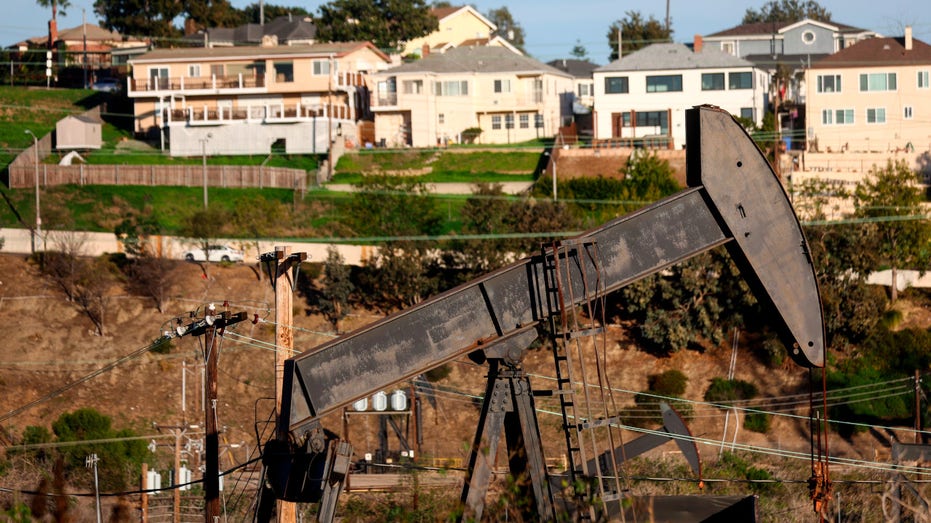Biden to sell 26 million barrels more from the Strategic Petroleum Reserve
The Strategic Petroleum Reserve is currently at its lowest level since 1983
Joe Biden bashes oil companies in State of the Union
North Dakota Sen. John Hoeven shares his thoughts on the Republican backlash to Biden’s green energy transition claims during SOTU on ‘The Bottom Line.’
The Biden administration on Monday announced another sale of oil from the Energy Department's Strategic Petroleum Reserve (SPR), with 26 million barrels set to be delivered to the market from April 1 to June 30, which will take the number of barrels in the reserve to a new low dating back to 1983.
Unlike the largest-ever drawdown of the SPR that Biden announced in response to Russia's war in Ukraine, the latest release of 26 million barrels is in response to a requirement included in two laws enacted by Congress during the Obama administration under the Bipartisan Budget Act of 2015 and the Fixing America's Surface Transportation (FAST) Act. The announcement comes ahead of a potential uptick in gas prices as the U.S. nears the summer driving season.
"Biden is front-loading SPR barrels to avoid a summer gasoline price spike," said Phil Flynn, analyst at Price Futures Group and FOX Business Network contributor. "There are growing concerns among the Biden administration that gas prices are headed back to $4 a gallon and the president is fearful of the political heat he will have to take."
WEST COAST PIPELINE LEAK NEAR LOS ANGELES HAS HALTED GASOLINE DELIVERIES IN SEVERAL STATES

An oil well on the Fort Berthold Indian Reservation near New Town, North Dakota. (Tyler Olson/Fox Business / Fox News)
Price added, "By pushing barrels forward from previously announced sales he is robbing Peter to pay Paul but is discouraging future U.S. oil and gas investment. There should be some backlash from Republicans who are getting tired of using the SPR for political purposes and creating short-term price relief in exchange for much higher prices down the road."
When Biden took office in January 2021, the SPR contained 638 million barrels out of a congressionally authorized maximum capacity of 713 million barrels. After a series of releases totaling more than 260 million barrels, the SPR is at about 371.6 million barrels as of February 2023 — the lowest level since December 1983, according to data from the Energy Information Administration (EIA). Selling another 26 million barrels from the SPR without adding new barrels of oil to offset the decline would take the SPR inventory to about 346 million barrels, which would be the lowest level since August 1983.
OIL PRICES JUMP AFTER RUSSIA ANNOUNCES IT WILL SLASH PRODUCTION

An oil pumpjack operates in the Inglewood Oil Field on Jan. 28, 2022, in Los Angeles. (Mario Tama / Getty Images)
Lawmakers from both parties have used SPR sales as a means to finance spending proposals — often through mandates that the sales occur years in the future as was the case for this sale. Presidents have also regularly tapped the SPR to provide short-term relief for gas prices.
However, the sizable decline in the number of barrels contained during the SPR has made lawmakers balk at further reductions and the bipartisan omnibus spending bill that Congress passed in December canceled mandated sales of about 140 million barrels that were going to occur in fiscal years 2024 through 2027.
CALIFORNIA VOTERS TO WEIGH IN ON BANNING NEW OIL AND GAS WELLS NEAR COMMUNITIES

An oil pump jack pumps oil in a field near Calgary, Alberta, Canada, on July 21, 2014. (Todd Korol/File Photo / Reuters Photos)
The Republican House recently passed a pair of bills putting conditions on future sales from the SPR, including a prohibition on selling SPR oil to the Chinese government or companies it controls, and a bill that would require the development of a plan to make more federal lands available for oil and gas leasing prior to a non-emergency drawdown of the SPR. The former passed with a broadly bipartisan vote of 331-97, while the latter advanced along party-lines following a 220-205 vote.
The Department of Energy (DOE) said in a statement announcing the sale, "The Administration is focused on replenishing the SPR in a way that provides the best deal for taxpayers by aiming to repurchase crude at a lower price than it was sold for, while providing certainty to the industry in a way that helps encourage near-term production."
GET FOX BUSINESS ON THE GO BY CLICKING HERE
DOE is looking to replenish the SPR over the long term through direct repurchases with revenues obtained through emergency sales, exchange returns that include a premium to volume delivered, and legislative solutions that avoid unnecessary sales unrelated to supply disruptions – such as through the arrangement included in the recent omnibus.
Fox Business' Alexa Angelus and Edward Lawrence contributed to this report.




















